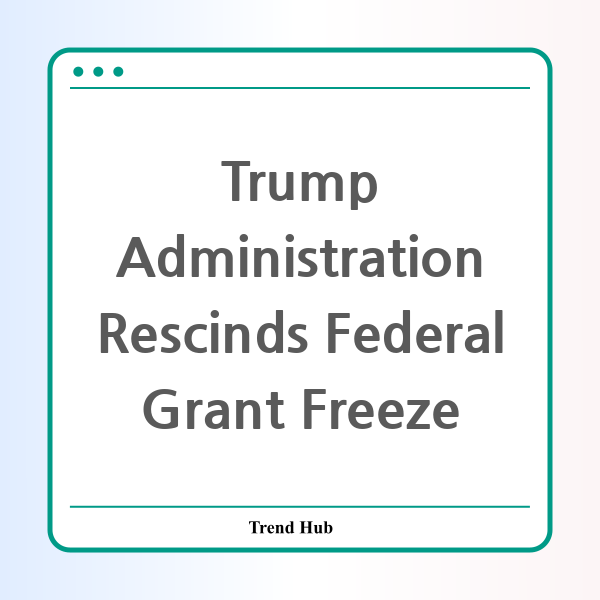* This website participates in the Amazon Affiliate Program and earns from qualifying purchases.

In a surprising turn of events, the White House has officially rescinded its controversial freeze on federal grants, an action that had caused significant uproar across various sectors. This decision is particularly relevant for individuals and organizations dependent on federal funding for essential services.
The memo issued by the Office of Management and Budget (OMB) stated that the previous order had been a mistake and was immediately rescinded. This memo, dated Wednesday, clarified that federal agencies were no longer required to pause all activities related to the obligation or disbursement of federal financial assistance. The initial memo that caused the freeze, which was made public earlier in the week, had sparked chaos in Washington and led to fears about the repercussions for numerous government programs.
The original order was intended to review which federal programs were consistent with the Trump administration's agenda. However, its vague wording created widespread confusion over which programs would be affected, leading to immediate backlash from various stakeholders, including state governments, nonprofits, and public-health advocates.
Initially, the freeze had significant implications for critical services such as healthcare, housing assistance, and educational grants. Reports indicated that states encountered difficulties accessing funds for essential programs, and public housing authorities were unable to utilize their funding portals—essentially locking them out of their necessary financial resources. This situation raised alarms for many organizations that play a vital role in supporting low-income Americans.
In response to the widespread backlash, a federal judge temporarily halted the implementation of the freeze, allowing various groups to challenge the legality of the directive. This legal intervention highlighted the pressing need for transparency and proper governance in federal financial disbursement. Advocates praised this as a significant victory for the American people, emphasizing that public outcry played a crucial role in overturning the decision.
President Trump’s administration had insisted that programs like Social Security and Medicare would remain unaffected; however, the vague language of the initial directive led many to question the reliability of such assurances. For instance, community organizations that deal with healthcare and homelessness reported that they were unable to access online funding portals, causing immediate and potentially long-lasting harm to those in need of assistance.
Critics have characterized the incident as a demonstration of incompetence and a lack of due diligence on the part of the administration. They argue that the chaos and confusion created have inflicted real harm on millions of Americans who rely on federal aid for their livelihoods. The administration's rapid decision to rescind the freeze is seen as a direct response to mounting pressure from both the public and legal entities.
As discussions continue about the future of federal funding and aid distribution, this incident serves as a reminder of the significant impact that policy decisions can have on the everyday lives of citizens. It underscores the need for responsible governance and clear communication from federal agencies regarding funding directives.
In summary, the rescission of the federal grant freeze reflects the power of civic engagement and the necessity for accountability within federal oversight. As we move forward, it is imperative to ensure that such chaos does not become a recurring theme in federal financial management, allowing the focus to remain on supporting and uplifting the communities that need it most.
* This website participates in the Amazon Affiliate Program and earns from qualifying purchases.